- Home
- Thomas H. Cook
The Crime of Julian Wells Page 8
The Crime of Julian Wells Read online
Page 8
Then, with characteristic detail, giving the precise date and location, Julian told us how Indian troops had crammed scores of British subjects into an unventilated room, where they’d died of suffocation or been trampled to death during one long night’s ordeal.
“What did the British do after that?” Marisol asked.
“They decided that the Indians were savages,” Julian answered. “And the subjugation of India became less—”
“Gentle?” Marisol interrupted softly.
I’d never heard her interrupt anyone. It simply wasn’t her style. There was an unmistakable edge in her tone, too, though one so subtle I couldn’t tell if it reflected anything more than the general anticolonialism any young person might have embraced at the time. Certainly it was not enough for me to conclude that Marisol was political in the sense that I’d used the word with René, something that would have caused her to be a target of the Dirty War.
René was quiet for a time after I related this small exchange to him. Then he said, “Anyway, you were safe. You and Julian, I mean. He made much of this, that despite all that was going on in Argentina, the two of you were safe.”
“Yes, Julian and I were safe,” I said, and thought of the legions of the disappeared, the marches their mothers made each day in the Plaza de Mayo. Still, I could not place the Marisol I’d known—so very quiet and lacking any visible political position—among the ranks of those who’d later been caught up in the Dirty War’s repression. From those clutches, she’d always seemed as safe as Julian and I, and because of that, it had never occurred to me that she might have ended up in some dank cell, bruised and battered and lying in her own excrement, listening, with whatever consciousness remained to her, for the dreadful footfall of her torturer’s approach.
“You have been silent for a long time,” René said.
His voice seemed to come to me from a far less perilous world.
“Really?” I said. “I didn’t realize.”
René drained the rest of his coffee. “Tomorrow we go to Oradour.”
We left Paris the next morning, a warm day but rainy, the city streets shrouded in a gray mist that gradually dissipated, so that we were in bright sun within an hour or so.
The way to Oradour was south from Paris, and it led into the heart of what had once been Vichy France, where the French had been permitted to rule—or pretend to rule—during the German occupation. Here Pierre Laval had signed the infamous order deporting non-French Jews to their deaths, for which, among other of his collaborationist acts, he had been executed by firing squad after the war.
Julian had touched on all this in a letter written while working on Oradour, and in recounting Laval’s death, he had offered an unexpectedly sympathetic portrait of Laval’s final hours, how he’d bungled a suicide attempt by not shaking the bottle before drinking the poison it contained, the way he’d worn a tricolor scarf to the execution site in a twelfth-hour effort to grasp the laurel of patriotism, his final love-of-country declaration, shouted just before the shots rang out: Vive la France!
It was the seamless combination of scope and detail that Julian brought to all his later books, and thinking of it as we closed in upon Oradour, it renewed my admiration for him as a writer, one all the more fortified by what I’d learned from René the day before: the solitary life Julian had led in France, the habitué of a seedy bar in Pigalle, the way he’d made himself companion to the alien and the lost.
We reached Oradour in the early afternoon. My plan was to walk through it slowly, absorbing the place in increments as the day waned, so that I would reach the end of my tour at the very time of day when, according to the final passage of his book, Julian had left it for the last time, his research completed, his many hours of interviews and of walking the town’s ghostly streets finally come to their end.
We parked just outside the town by the visitors’ center, and for the next few hours I carried Julian’s book with me as I slowly ambled among its ruined streets, René at my side, looking faintly bored. Along with a scattering of other tourists, we strolled among the shattered buildings and stood in the charred nave of the church in which so many had been burned alive, the rest shot as they attempted to escape. I paused at Hotel Avril, where the three Pinède children had hidden, their village burning around them, its smoke and fire finally driving them from their hiding places. Behind the hotel, I saw where, in the midst of their flight, they had encountered an SS soldier who had unaccountably permitted them to escape.
Toward the end of my walk, I paused at the well into which the bodies of several villagers had been tossed. Julian had no doubt stood here, and so I tried to imagine what he might have been thinking as from this vantage point his own eyes had observed the ruins of Oradour.
Surely he would have considered how, for a few hours on June 10, 1944, Oradour had truly been a hell on earth, for in his account of it nothing of that horror had been lost. He’d tried to see the tragedy from 642 angles, but it was his own eyes, at the end of the book, that had seen the town in its grief-stricken repose. That final view had been glimpsed on the Champ de Foire, so when I at last came to that part of town, I opened Julian’s book and read, softly but aloud, its concluding passage:
Twilight fell on the Champ de Foire. The car Dr. Desourteaux drove into Oradour that afternoon still rests where he left it, though no longer in the same state. Time has stripped away its paint and its metal has gone to rust, for even a ruin cannot be spared the assault of further ruin. So also fade the killing sites, the barns at Laudy, Milord, and Bouchole, the Beaulieu forge, the Desourteaux garage, the little wine store on the road to St. Junien, the church where the women and children were gathered, and whose shattered belfry still looks down upon the road that, but for the terrors of that day, those same women and children might later have taken to distant, spared Limoges. The signs that designate these once unheralded spots have begun to peel and soon must be repainted. The bolts that hold them to Oradour’s stone walls will likewise need to be replaced. For ruins, too, must be restored, and with every restoration, Oradour, the town, slips further into Oradour, the event, a process that will reach its end when the last of those who survived those fearful hours pass beyond all further restoration, and the last eyes to have seen Oradour as something other than a martyred village will at last be closed.
After a dramatic pause, I closed the book and looked at René.
“Okay,” he said. “So, we go now?”
A few minutes later we reached the hotel René had booked for us. It was in a neighboring village, small, quiet, with a restaurant that served us politely, though the waitress appeared somewhat surprised when René, so thoroughly French, asked for ketchup for his pommes frites.
“A self-conscious American in France would never do that,” I told him.
He laughed. “Yes, but I am French, so I can do what I want.”
He ate with great relish, like a man accustomed to answering his appetites without reserve, and in that way quite the opposite of Julian, who had lived a far more Spartan life.
“Did you ever see Julian happy?” I asked. “Did you ever see him laugh uncontrollably?”
“He had only black thoughts,” René answered. “That was his nature.”
“No, it wasn’t,” I said. “When he was a young man, he was happy and self-confident. He had lots of romances. He would horse around like anyone else.”
“Horse around?”
“Joke with people, that sort of thing.”
“This is what it means, ‘horse around’?”
“Yes.”
René took out a pad and made a note. “Julian, yes, you are right, he did not, as you say, ‘horse around,’” he said as he returned the pad to his pocket. “Only sometimes he went to Le Chapeau Noir.” He placed the bowl of his glass between his large hands and rolled it back and forth. “It is like a place from a movie, this bar,” he said.
“In what way?” I asked.
The glass stilled, as did René�
��s usually darting eyes. “If you go there, you will see,” he said.
11
But why should I go there? Julian had never written about Le Chapeau Noir in any of his books. From time to time it had made an appearance in his letters, though rather sketchily, a line here, a line there. Still, he’d written about it enough for me to have gathered that it was typical of Pigalle, that is to say, rather seedy. I’d imagined it with a cement floor, its tables and chairs a mismatched assemblage. Julian had once described its clientele as a ragged array of expatriates. He’d probably said other things about it, too, though only one of them had stuck, the fact that it was the sort of place where, even when men talk of love, they seem to talk of murder. That had been a telling phrase, which no doubt accounted for the fact that I’d remembered it.
Clearly, Julian had gone to Le Chapeau Noir quite often, and perhaps for that reason, I found myself imagining him as a lone figure, dressed in a worn trench coat, moving down a deserted, rain-slicked street, the lights of Pigalle’s famous windmill shining dimly through a mist.
This was a purely fanciful portrait, of course, and yet, in imagining such a scene, my curiosity was heightened, particularly as to why Julian had described Le Chapeau Noir in a way that was so incontestably sinister, a bar where love and murder mingled with the smoke, curled and twined and became entangled.
“It was like places in those spy books he was reading,” René told me when I mentioned this to him the next morning over breakfast. “There was still the Cold War in those days, and this bar, it was maybe a little like Vienna in that movie.” He began to hum the theme of The Third Man. “And now you are maybe a little like the American in that movie, no?” he asked with a short laugh. “Searching for your dead friend?”
I’d never thought of myself as a character in a film, especially one written by Graham Greene, and yet, I had to admit that I did feel a little like Martins in The Third Man. I wasn’t a penniless pulp writer, as he’d been, and I didn’t expect to meet a mysterious woman in a cemetery, but, as a man who’d lived a relatively safe life, experienced only the most commonplace adventures, risked nothing except on the stock market, there was something in Martins’s steadily intensifying investigation of the mysterious Harry Lime that was not unlike my own.
But I could also feel Martins’s confidence that no matter what he discovered about Harry Lime, it would do nothing to undermine his love or admiration for him. Anna Schmidt had assured him of exactly that in one of the movie’s most quoted lines: “A person doesn’t change just because you find out more.” I felt no doubt that it would be the same with Julian, for it seemed to me at the time that the goodness of a man was like a vein of gold that only widens as it deepens, then dazzles at the core.
My walk through Oradour had only increased my confidence in his essential goodness because it was here that Julian had made innocents the focus of his art by giving them voice, while at the same time, in a single, extraordinary artistic choice, he had denied any voice to their tormenters, so that while the villagers had emerged as individuals, the Germans had all but disappeared.
Disappeared.
Strange how that word brought Marisol back into my mind, she whose disappearance had so disturbed Julian, his search for her one of his life’s distinct failures, a dark end to his Argentine adventure that could not have been predicted by its bright beginning.
And it had been very bright, indeed, that beginning. We were often together, the three of us a faintly Jules and Jim trio of young people, though it was never a love triangle.
But though Julian was not in love with Marisol in that fiercely romantic way, he had certainly searched for her as if she’d been a lost lover, journeying all the way to the Chaco to see the priest who’d raised her.
He was in his midsixties, this priest, but he looked much older. His hair was gray, his face deeply lined, so that upon first impression he seemed to be as weathered as the destitute parish in which he’d labored all his life.
“He was already old when my aunt brought me to him,” Marisol said as we made our way to meet him that afternoon. “But he took in this little girl he did not know.”
She was dressed less stylishly than usual and had added a small white flower to her hair, a touch of the indigene that you never saw in worldly Buenos Aires. A nod to the priest, I supposed, proof that her heart—or at least part of it—remained with him in the Chaco.
The old priest was sitting alone on a bench as we approached him. He did not see us but continued to stare straight ahead while he fingered a wooden rosary.
“It is Father Rodrigo who sent me to Buenos Aires,” Marisol said, her gaze more intently on Julian than on me. “He is the saint of the Chaco.”
He was now only a few feet away, and it seemed to me that he was older than the color of his hair or the texture of his skin suggested. There was a spiritual quality to his agedness, a sense that he was as old as his faith, a witness to that first crucifixion.
We were almost upon him before he caught Marisol in his eye and struggled to his feet.
“Ah, my sweet daughter,” he said as he drew her into his arms.
She kissed him on both cheeks, then turned and introduced us.
The priest shook Julian’s hand first, then turned to me.
“I have heard of your father,” he said. He stretched his hand toward me and I took it. “He is said to be a good American. A friend. Hermano en la lucha.”
“I don’t know what that means,” I confessed.
“A brother in the struggle,” Marisol informed me.
Brother in the struggle?
I couldn’t imagine what Father Rodrigo was talking about.
“He is a man of the people, your father,” Rodrigo added. “This is what I have heard. He is known as our friend in your capital. The poor do not have many friends there.”
He had been gently pumping my hand during all this, and only now released it. “So, how do you know my Marisol?”
Though the question had been addressed to me, it was Julian who answered it.
“By way of the American consulate,” he said.
Father Rodrigo’s expression soured as he turned toward Julian. “They are working with the bad men of this country,” he said firmly, then looked at Marisol. “Be careful what you say, my child. It is known that they are spies.”
Spies. The word clearly caught Julian’s attention.
“Really?” he asked. “Spies for whom?”
“For Casa Rosada,” Rodrigo answered. “They give them names. Then these people disappear.” He looked at Marisol and placed a single, jagged finger at his lips. “Careful,” he said, then glanced toward a nearby bench. “Come, let us sit down.”
Once seated, Father Rodrigo took a moment to observe his surroundings. “Ah, how beautiful is San Martín. I have not seen it since I was a boy.”
He meant Plaza San Martín, a lovely park in the heart of the city, where Marisol had earlier instructed us to meet her. It was close to Retiro Station, she said, and Father Rodrigo was scheduled to leave the city that evening. I’d had little interest in coming, but Julian had insisted. Clearly he had indicated to Marisol that he considered it important to meet this old priest.
At rest, Father Rodrigo seemed even older, but also he looked neglected. His clerical collar was slightly frayed and there were a few small tears in his cassock. This suggested that no help was being provided to him, no Gran Chaco equivalent to those formidable ladies of my boyhood parish, women who kept their priests tidy down to the neatly folded underwear.
My father had explained that South American clergy who subscribed to revolution theology were being punished by what he called “the powers that be,” but on Father Rodrigo such imposed deprivations had created an aura of saintliness. Here was the Church as it should be, I thought, not a thing clothed in robes and adorned by jewels and housed in splendid cathedrals, but a country priest in a worn cassock.
“So,” Father Rodrigo said, glancing first to Julia
n, then back to me, “has Marisol told you of the place where she grew up?”
She had, as a matter of fact, but for the next few minutes, we listened politely as Father Rodrigo detailed the sad life of the Chaco, the poverty and poor education, young lives doomed to nothing else. It was this doom that he’d wanted Marisol to escape. He’d seen her intelligence, her will, the fact that she would grasp whatever opportunity came her way.
“Which she has done,” he said proudly, then drew Marisol beneath his arm. “She is no longer a girl from the Chaco.”
Marisol plucked the small white flower from her hair and gave it to Rodrigo. “I will always be a girl from the Chaco,” she said.
By then, night had begun to fall over Plaza San Martín. Father Rodrigo struggled to his feet.
“I must go now,” he said. “The bus home leaves soon.”
Marisol tucked her hand beneath the old man’s arm. “I will go with you to the station,” she said.
“I’ll come, too,” Julian volunteered immediately.
“No,” Marisol said softly. “It is for me to do this.”
And I thought, here is the soul of goodness: love, duty, sacrifice, and atonement, all combined to form something for which no word exists in English, save perhaps grace.
“No, I want to go with you,” Julian said insistently, like one who wished to share this service with Marisol.
Marisol appeared uncertain of accepting Julian’s offer and surprised by his adamance.
“Let these good boys come with us,” Father Rodrigo said to Marisol. He pressed his sunbaked hand against her immaculate skin. “We must learn the many roads into each other.”
Had it not been for the utter sincerity in the old man’s eyes, I would have thought that final line scripted, a homily only a Barry Fitzgerald could have delivered without provoking laughter. As a statement, it was at once profound and corny, as true as it was impossible, and yet, as an expression of the old man’s Christian perfectionism, it seemed entirely sincere.

 The Interrogation
The Interrogation Sacrificial Ground
Sacrificial Ground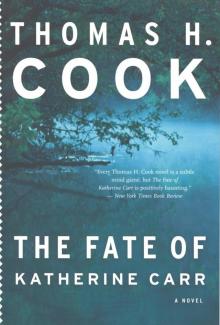 The Fate of Katherine Carr
The Fate of Katherine Carr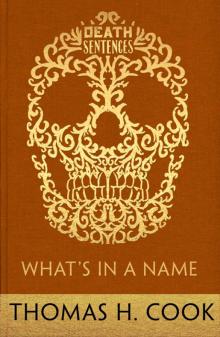 What's In A Name
What's In A Name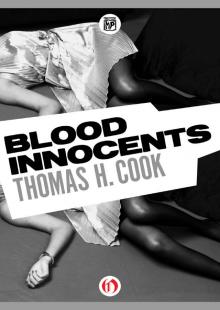 Blood Innocents
Blood Innocents Peril
Peril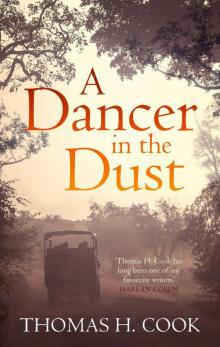 A Dancer In the Dust
A Dancer In the Dust Breakheart Hill
Breakheart Hill The Chatham School Affair
The Chatham School Affair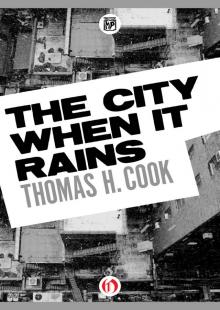 The City When It Rains
The City When It Rains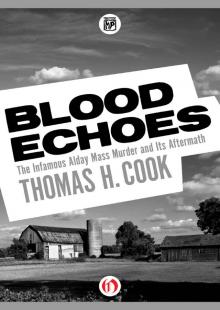 Blood Echoes
Blood Echoes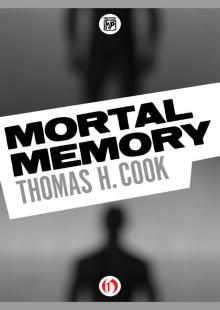 Mortal Memory
Mortal Memory Evidence of Blood
Evidence of Blood Into the Web
Into the Web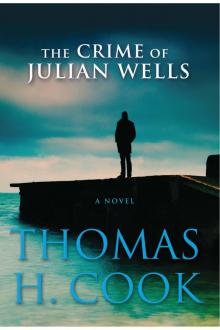 The Crime of Julian Wells
The Crime of Julian Wells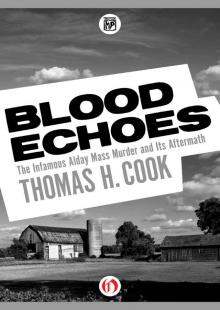 Blood Echoes: The Infamous Alday Mass Murder and Its Aftermath
Blood Echoes: The Infamous Alday Mass Murder and Its Aftermath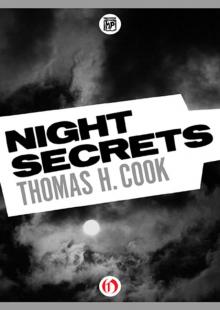 Night Secrets
Night Secrets Places in the Dark
Places in the Dark The Orchids
The Orchids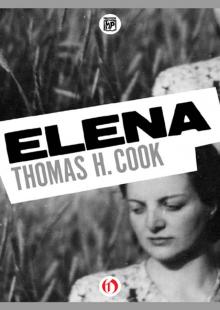 Elena
Elena Streets of Fire
Streets of Fire Instruments of Night
Instruments of Night Sacrificial Ground fc-1
Sacrificial Ground fc-1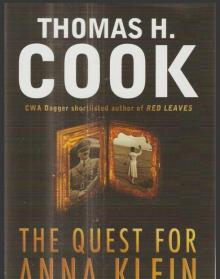 The Quest for Anna Klein
The Quest for Anna Klein Sandrine's Case
Sandrine's Case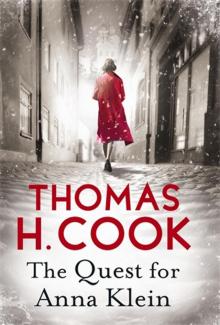 Quest for Anna Klein, The
Quest for Anna Klein, The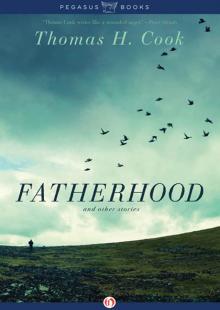 Fatherhood
Fatherhood Flesh and Blood
Flesh and Blood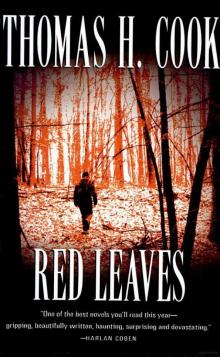 Red Leaves
Red Leaves